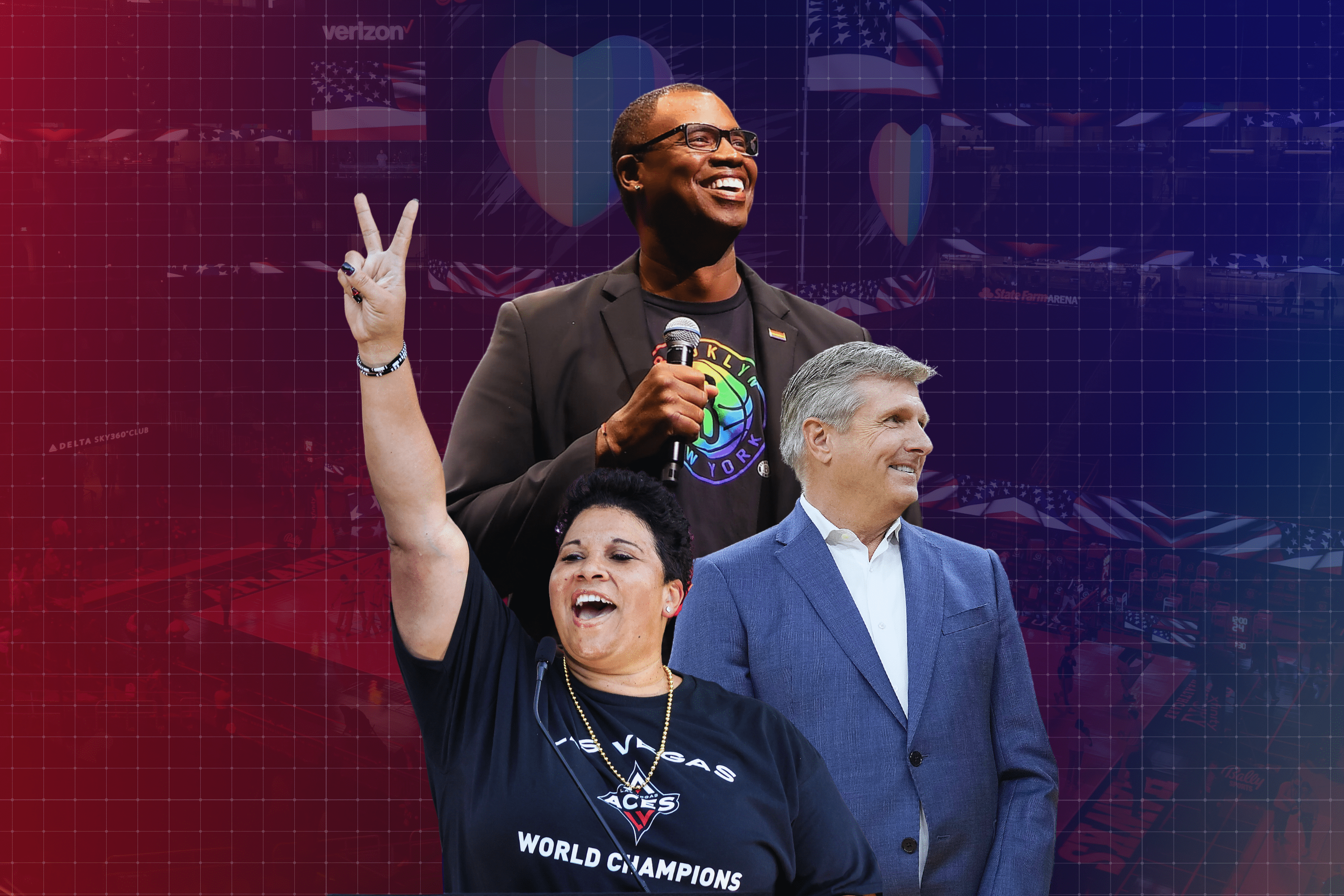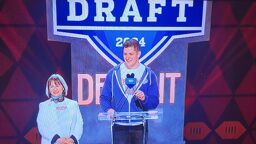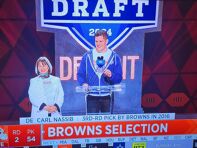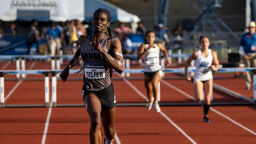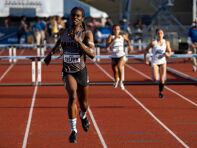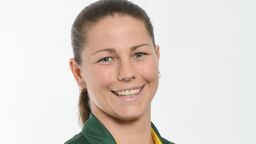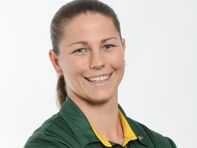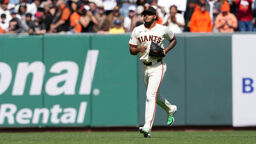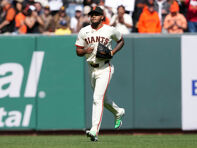For our extensive coverage of the 2023 Outsports Power 100, and to see all of the honorees, click here. And share on social media with #Outsports100.
No professional sports league in the world has more publicly out LGBTQ athletes, coaches and executives than the WNBA. So it shouldn’t be a surprise that the Outsports Power 100 includes 20 people associated with the WNBA.
At the same time, no men’s league has more team and league executive honorees than the NBA. And of all the men’s Big Four leagues to have an active athlete come out publicly? The NBA was first, with Jason Collins in 2013.
This hasn’t been accidental. The NBA and WNBA have collectively centered individualism and inclusion for decades, eschewing attitudes in other leagues that may be keeping LGBTQ athletes and executives in the closet.
Get off the sidelines and into the game
Our weekly playbook is packed with everything from locker room chatter to pressing LGBTQ sports issues.
On our inaugural Outsports Power 100, nearly a third of the honorees are in the WNBA or NBA, and a few more are media figures who cover those leagues.
That’s pretty remarkable. In addition to the two-dozen-plus honorees, the two leagues together provided over 25 more names of out team and league executives — all director-level or above — who didn’t make this year’s list, which is as powerful of a story as the number who did.
Outsports spoke to a half-dozen people involved with the NBA and WNBA about how the leagues became the premier examples of LGBTQ inclusion in American sports.
We found insights about two leagues that have, over the years, learned from one another and, under the leadership of NBA Commissioners David Stern and Adam Silver — as well as several WNBA Presidents including Val Ackerman — centered the inclusion of people regardless of their orientation, gender or race.
Stepping into an inclusive environment on day one
When Bonnie Thurston arrived at the league office in 2005, she wasn’t sure what to think about being an LGBTQ person in one of the most popular men’s sports leagues in the world.
Quickly she learned that, by then, the NBA and WNBA had developed a mutual culture of inclusion for gay and lesbian people.
“This is an organization where everyone who walks in the door can be themselves,” the WNBA Director of Player Programs said. “Everyone. In whatever shape that takes. That certainly started with David, and it’s been reinforced and continued with Adam.”

Yet Thurston points to Kathy Behrens as the “architect” of manifesting that inclusive atmosphere. It was with Behrens’ support that Thurston started an LGBTQ employee resource team, the first of its kind in major American pro sports.
“Jason Collins is the patron saint of NBA Pride, and Kathy is as well,” Thurston said.
Behrens is reluctant to take credit, rejecting the “architect” praise. As a straight woman, she reciprocally points to people like Thurston who had the courage to come out, be out in the front office, and raise their hand to help lead the LGBTQ-inclusion component of the NBA and WNBA workplace.
“It takes a lot more for Bonnie to stand up and say, ‘I think the NBA should have an LGBTQ ERT and I’ll run it,’” Behrens said of Thurston’s inclusion efforts. The NBA uses the term ERT for employee resource team.
Behrens observed that there was an inclusive culture before she arrived at the NBA and WNBA in 2000, and she executed a plan to amplify it.
“I think there’s a culture of inclusion here that everyone has a part in,” she said. “And certainly people like Bonnie, people like Rick Welts, like Jason Collins — ultimately Adam Silver and David Stern — this has always been a place where people felt comfortable and able to be who they were when they were ready.”
Both Thurston and Behrens also mentioned Athlete Ally, an organization working to build LGBTQ inclusion in sports, as a “valued and trusted partner” in their work within the league.
Thurston said the employee resource team for the LGBTQ community she helped create is one of the major accomplishments of her career.
“Of all the things I’ve done, this is one that will last long after I’m gone, and it’s been incredibly meaningful in my professional and personal life,” Thurston said.
Yet even before the creation of that LGBTQ ERT, Behrens, now the President, Social Responsibility & Player Programs, felt it was important to find ways to embrace LGBTQ employees and make them feel welcome. So when two gay men — Drew Tagliabue with PFLAG and Ken Mehlman with GLSEN — approached her about embracing the LGBTQ community, Behrens was all ears.
It was an idea presented by GLSEN — a PSA about stamping out the pejorative term “that’s so gay” — that piqued her interest. So in 2011 the NBA funded and shot a PSA with Grant Hill and Jared Dudley talking about the need to eliminate “casually homophobic” language from sports and society.
“We put a lot behind it,” Behrens said. “And Grant and Jared were great. It was a pretty groundbreaking campaign. It seemed like the right thing to do. It seemed overdue.”
Rick Welts’ powerful impact on NBA culture
Days later, Welts — then the President and CEO of the Suns — came out publicly as gay.
Welts had been a right-hand-man for Stern in the league office before taking the Suns gig in 2002.
He had seen an atmosphere in the league front office that welcomed women and people of color. While he hadn’t seen an overt embrace of gay people, he felt it.
“We were staffed in that moment of time where the old white guys were fully entrenched in baseball and football,” Welts said. “We could afford the younger people who looked a lot more like our society than those other leagues.”

As Welts built a Hall of Fame career in the NBA front office, as well as with the Suns and Golden State Warriors, his secret — he was gay with a boyfriend — stuck with him.
Yet he was also watching as the WNBA and its growing contingent of out LGBTQ athletes, coaches and fans opened the eyes of people in the NBA.
“In so many ways the W has led in all sports,” Welts said. “We’ve seen example after example where our community is front and center. I’m incredibly proud of the role the W has played.”
Still, there have been bumps in the road.
Gays and lesbians in the early days of the WNBA
When the WNBA came onto the scene in 1997, it was a bit of an experiment. Welts was working in the league office at the time and remembers conversations about the presence of lesbians for a fanbase that just saw President Bill Clinton sign the Defense of Marriage Act and Don’t Ask Don’t Tell.
“It was fascinating to me with my seat at the NBA to watch the W through its first few years,” Welts said. “A lot of assumptions we made were horribly wrong. We thought NBA teams should run WNBA teams.”
Those NBA teams brought attitudes about gays and lesbians that were at times fearful their presence in the WNBA might scare away non-LGBTQ fans.
Adam Lippard was a young executive with the Orlando Magic at the time, tasked by team CEO Bob Vander Weide with exploring the process of bringing a WNBA team to Orlando. Over his number of years with the Magic, Lippard, now a sports marketing executive, would come out to people in the Magic front office.
There was one particular WNBA-league-wide meeting to discuss expansion that Lippard remembers. The attendees were Welts, Ackerman — the first President of the WNBA — and representatives from all the current and prospective WNBA teams.
The representatives from one franchise, Lippard remembered, brought up the fact that they had been seeing signs held by lesbian fans saying, “I love the coach” or “marry me” to one of the players.
“Because it was a woman fan making an overture to a woman player, and there were burgeoning relationships between players, it was all coming to the forefront,” he said.
Lippard, still just coming out to his friends, family and colleagues, remembers a pitch-perfect response from Ackerman and Welts.
“Rick handled it in this calm, confident, gentle and authoritative way,” Lippard remembered. “And he effectively quieted the entire league and said, ‘we’re a league that appeals to everyone. And when you appeal to everyone you’re inclusive.’
“The language we have for DEI today, Rick was able to extemporaneously share that back then and get people to align around it. And he left everyone with clear perspective and direction.”
That was the late Nineties.
Shortly after, Lippard and Welts — who had heard about each other in whispers about gay men in the league — forged a friendship, and Welts became an important mentor for Lippard.
“It’s what I never had,” Welts said of his mentoring role for Lippard, over a decade before Welts came out publicly. “I didn’t know anybody. I didn’t know how it would affect my career. People like Adam were in a pro sports environment, and for Adam I was someone he could connect with who would understand his story. It’s somebody else who can relate to every single feeling and doubt you might have about whenever you can be out in your job. You just don’t know.
“Adam and I could have wonderful conversations about the work environments we were in, and being gay in this kind of industry and what we could accomplish being out and the ability to share that.”
Broad network of out LGBTQ team and league execs
Certainly millions of people know of Collins, the first active out gay athlete in any of the Big Four Leagues. Bill Kennedy, too, broke ground by coming out as a gay NBA referee in 2015.
Yet a major part of the inclusive nature of these two leagues are these behind-the-scenes stories of inclusive leadership, with many dozens of out LGBTQ executives and staff at all levels in the league office and their collective 42 teams.
Other initiatives the NBA and WNBA have shown the LGBTQ community include sports’ first line of Pride shirts representing every team in the league, as well as being the first pro sports leagues to have a float in a Pride parade. A couple years later, for New York City World Pride 2019, every major sports league followed the NBA’s lead. The league pulling the 2017 All-Star game from Charlotte when North Carolina passed an anti-trans bathroom bill has also lingered in Welts’ rich memory — He was a key voice in that decision process.
Today, thanks to so many public and internal efforts, the leagues are awash with out LGBTQ employees. In 2020 when I spoke to the Sacramento Kings, I was surprised to learn the team had seven out employees. It seemed an outlier at the time, yet across NBA and WNBA teams there are today many, many dozens — if not hundreds — of out staffers.
Raven Jemison has witnessed the inclusion first-hand.
She is one of the very rare people to have worked in the NFL, NHL, MLB, and now the NBA as the EVP of Business Operations for the Milwaukee Bucks, winning an NBA title with the team in 2021.
To be sure, Jemison’s tenure with the Bucks, starting in 2016, has coincided with a massive increase in acceptance of LGBTQ people across American society.

Still, she’s seen a difference in culture between the leagues.
“I do think there is something special about the NBA being the most progressive league in the core four,” Jemison said. “I’ve seen it firsthand working at the league front office. When I came into the league front office in 2015, I was out but I didn’t explore who I was in a professional setting until I came to the NBA.
“I came into my own and the league welcomed me with open arms.”
Jemison said the commitment to inclusion in the league office “has bled over into this Bucks culture, where we now have mentors of the LGBT community working in the organization.”
What’s the impact of having someone like Jemison — the rare gay Black woman with a seat at the table in a front office in American sports, who has also worked in all of the Big Four men’s pro sports — being so out and proud?
“Some people have told me that it’s having me in my role, and I lead my life that is authentically myself, so others feel welcomed. Somebody told me being private doesn’t help people who look like me and love like me. And I decided I can’t just be a private person anymore.”
Seeing inclusion as a player and executive
Las Vegas Aces General Manager Natalie Williams, a Women’s Basketball Hall of Fame inductee as a player, has seen people across the WNBA embrace her and her family — she has a wife and six kids — for two decades.
“I think the WNBA is great at supporting the LGBTQ community,” Williams said. “Several of the players have spouses and they are very supportive of them. We just had our Pride Day. It’s one of our biggest days to get people to come to the game. We sold out of our shirts. I feel the WNBA does a great job supporting LGBTQ families.”

Yes, those early days of the WNBA were a bit rougher with conversations within the league about how to address the gay and lesbian presence in the league. Yet by the time Williams entered the league in 1999, the conversations were fading.
Eventually that evolution gave rise to a WNBA culture that was largely run by women and that embraced social-justice issues like gender, race and orientation.
Jemison thinks there is still a lot of work to be done on those issues.
“I think it’s a matter of there being 250 people being considered for this [Outsports Power] list,” she said. Outsports did consider a group of about 250 out LGBTQ people in sports to be included amongst the 100 honorees.
“What should that number be? How do we build more representation and make more room for out members of the LGBT community having a seat at the table? How do we make people more comfortable being their authentic selves? How do we grow that number?”
As Outsports’ motto says, “Courage is contagious.” With the number of out LGBTQ people in the NBA and WNBA providing example, and the leagues’ presence on the inaugural Outsports Power 100, the numbers are sure to increase.
You can see all of the NBA and WNBA honorees on the 2023 Outsports Power 100 by clicking here.
